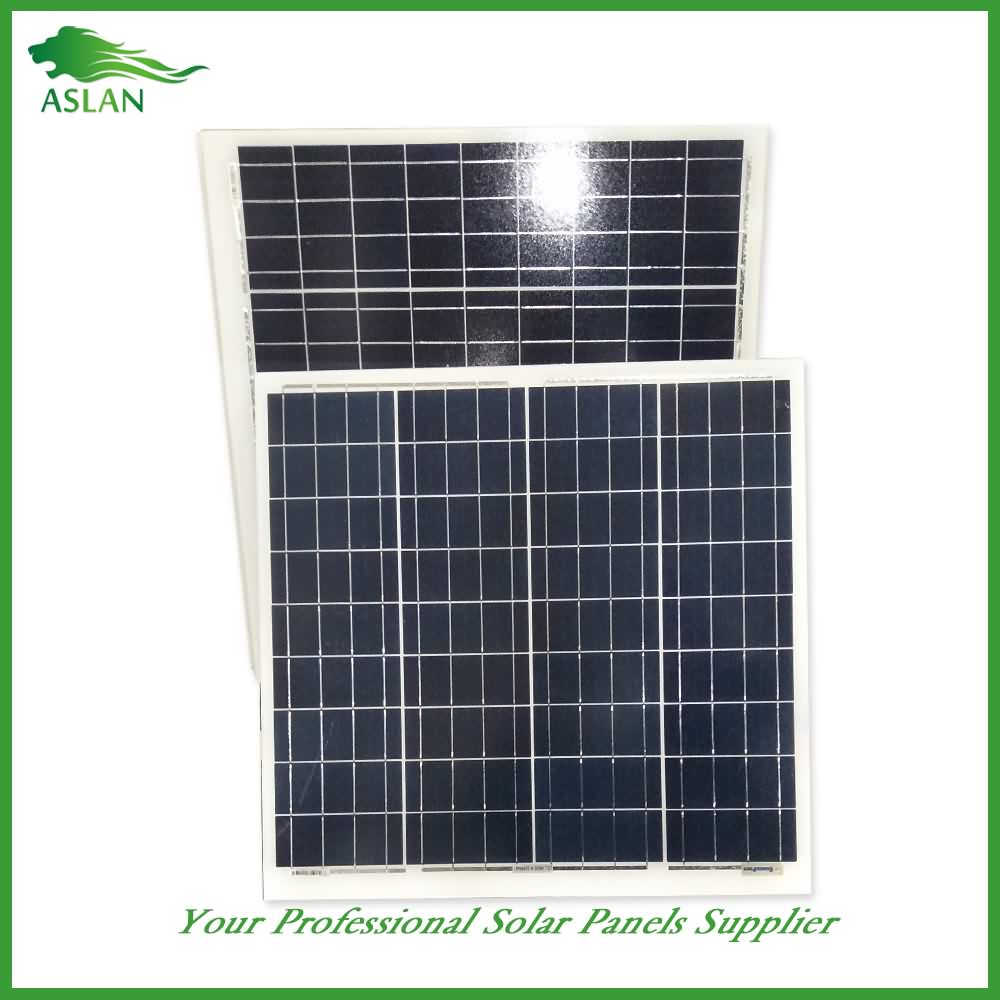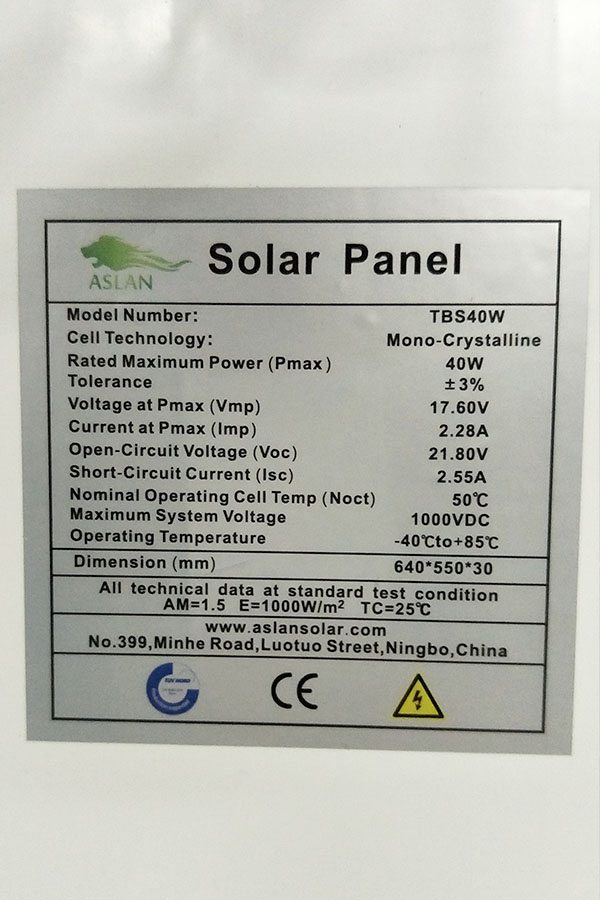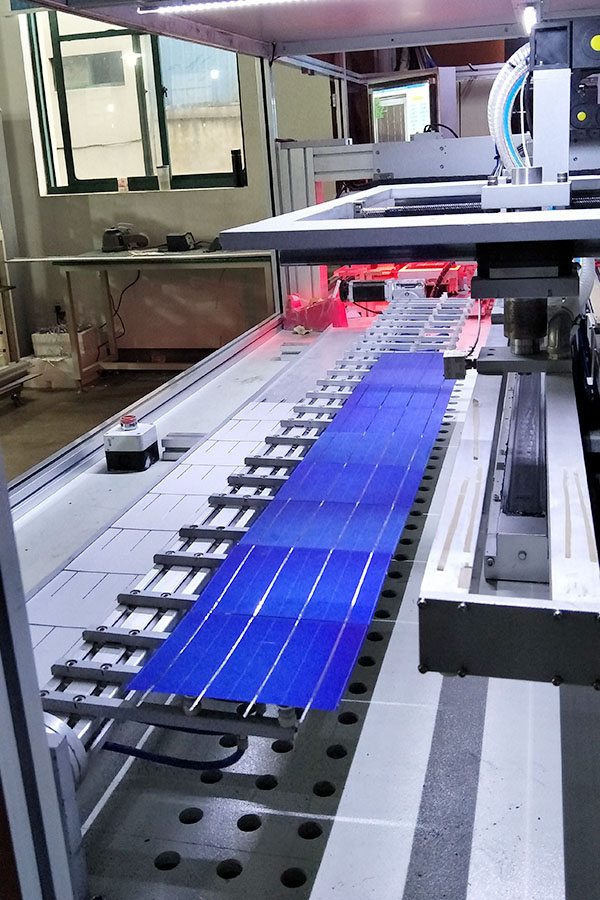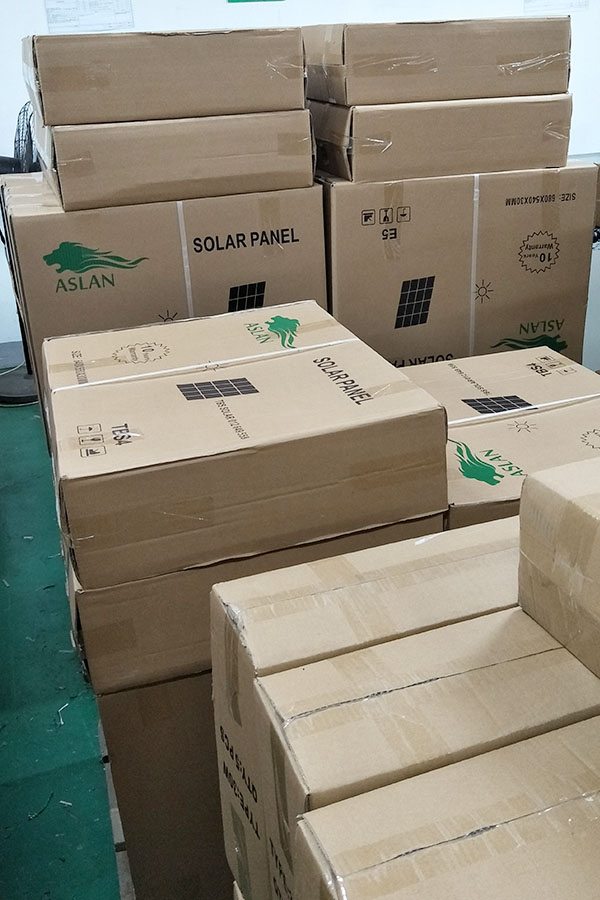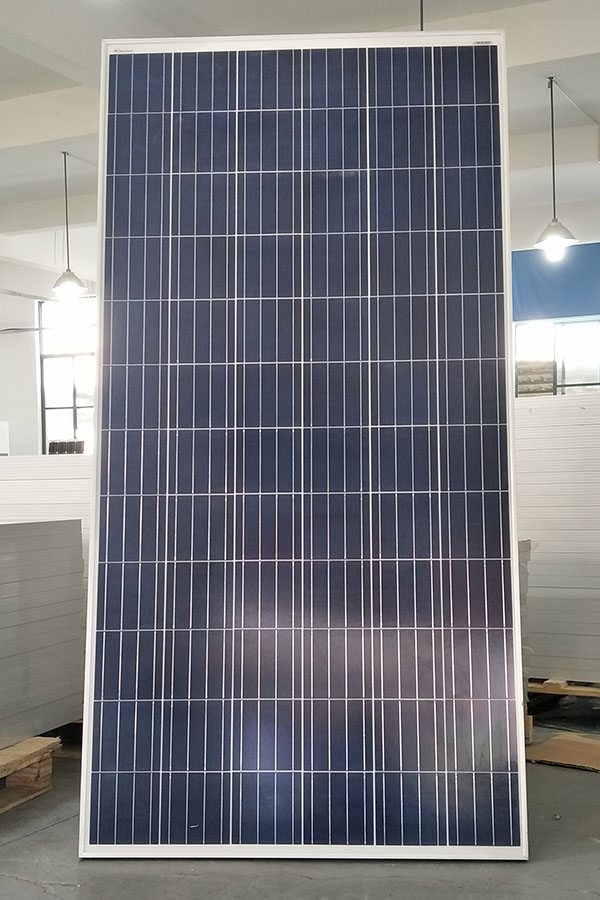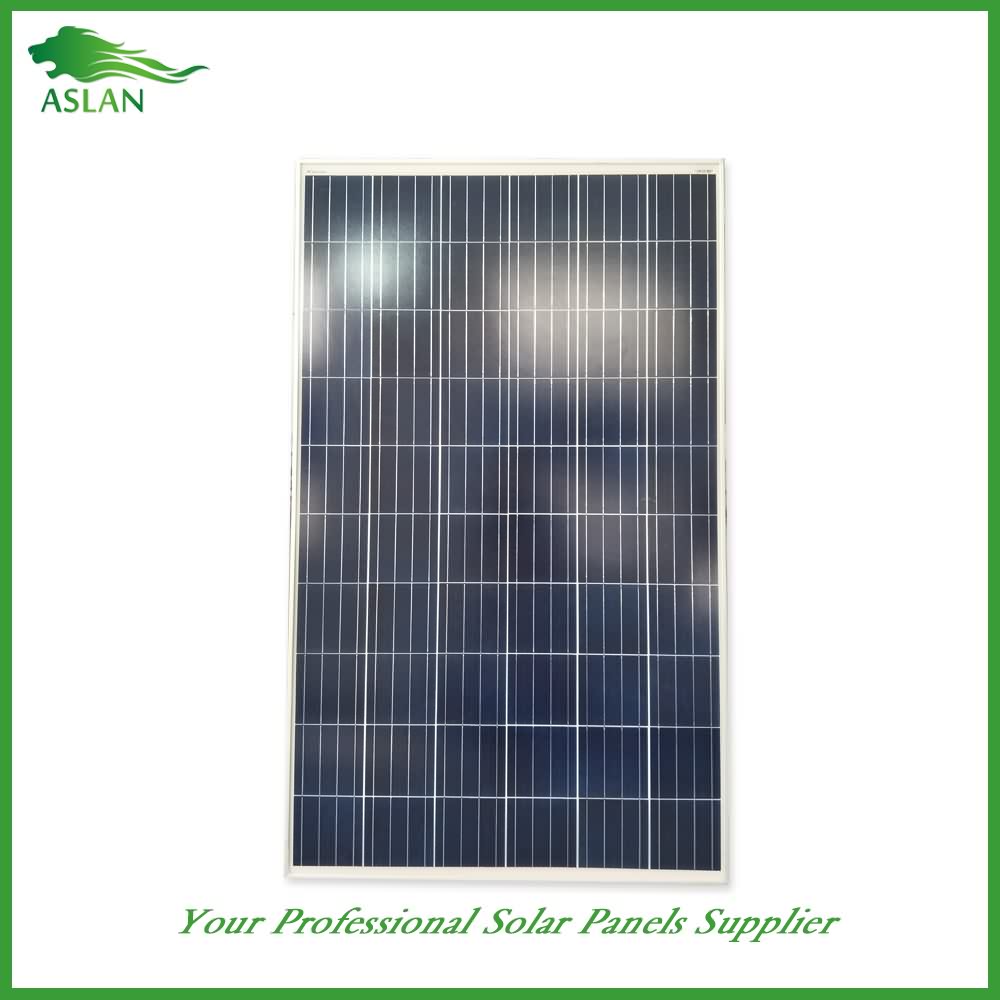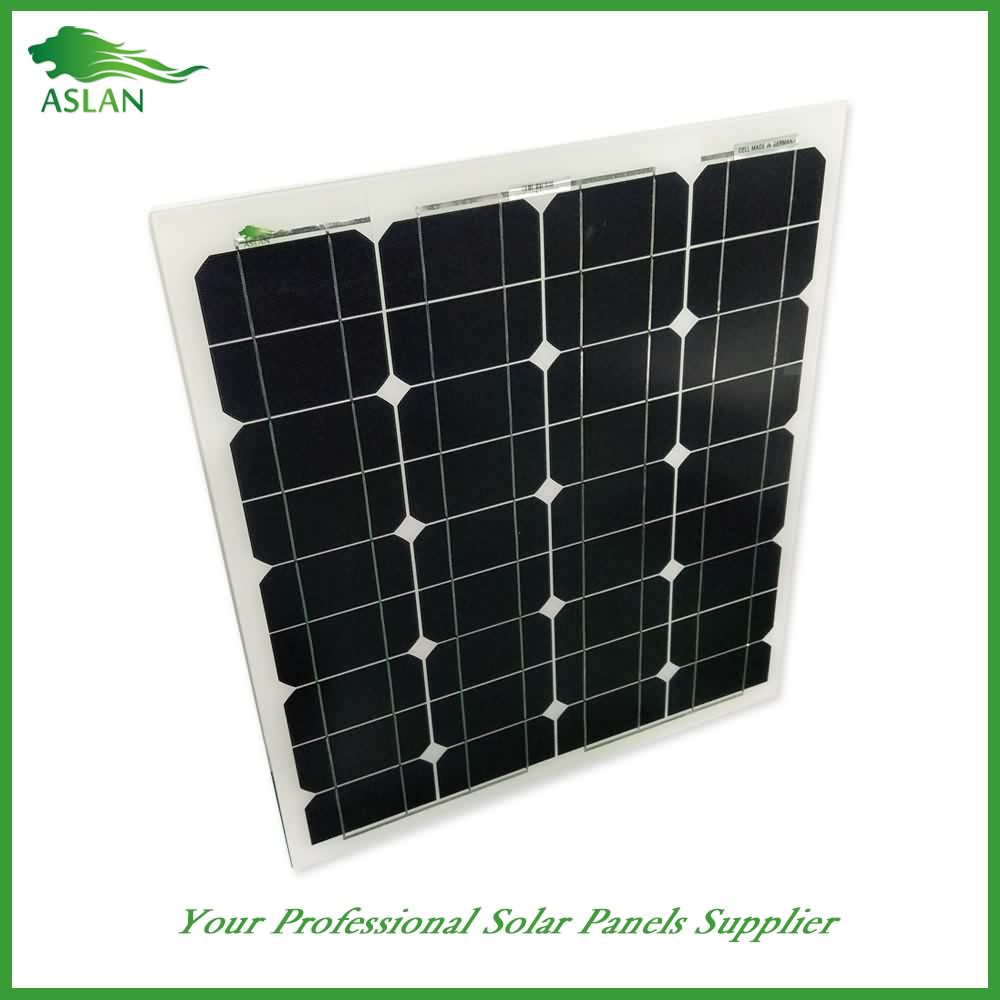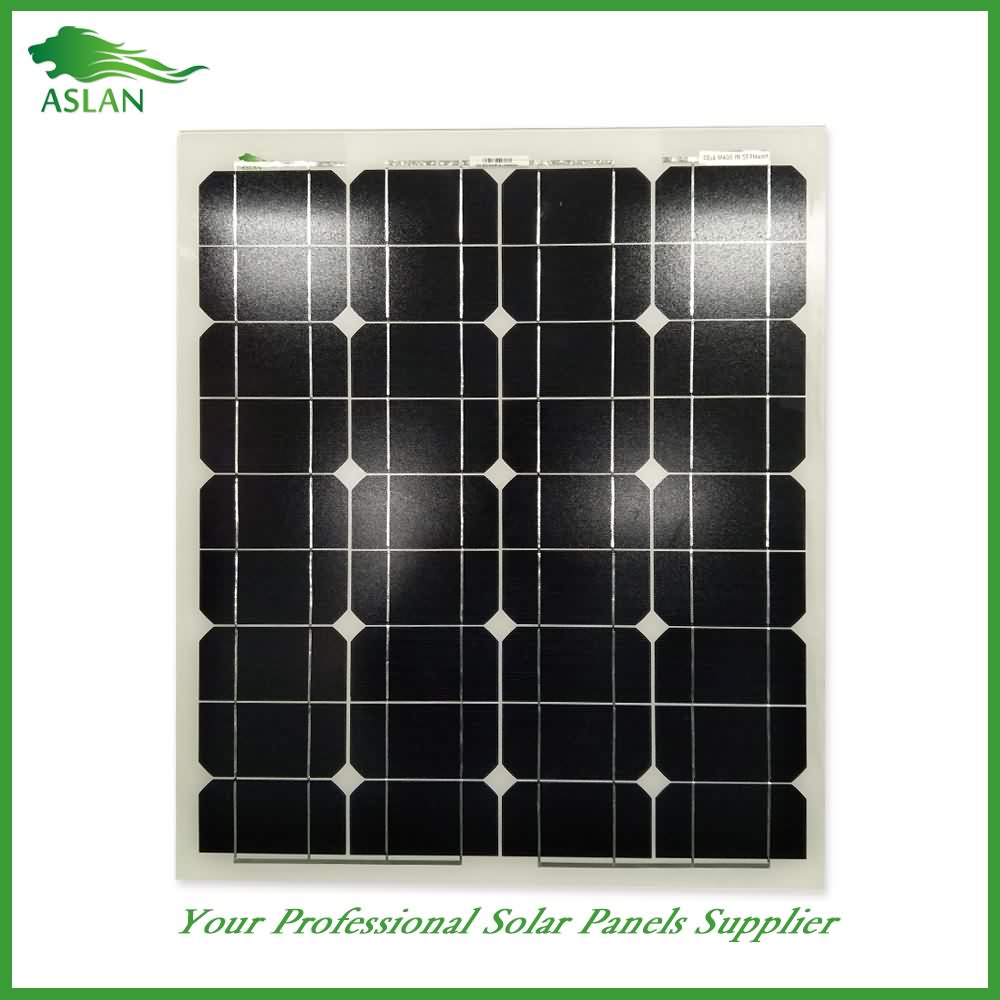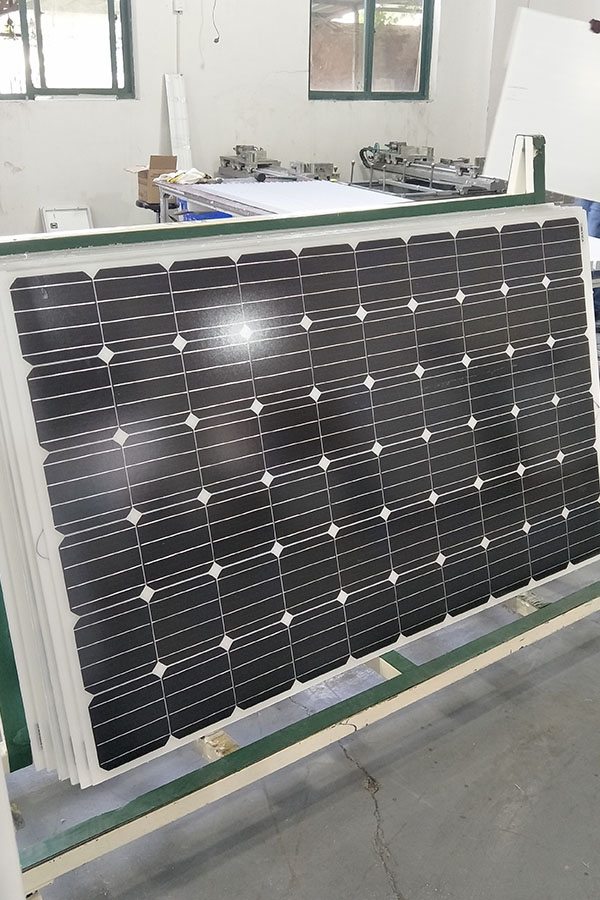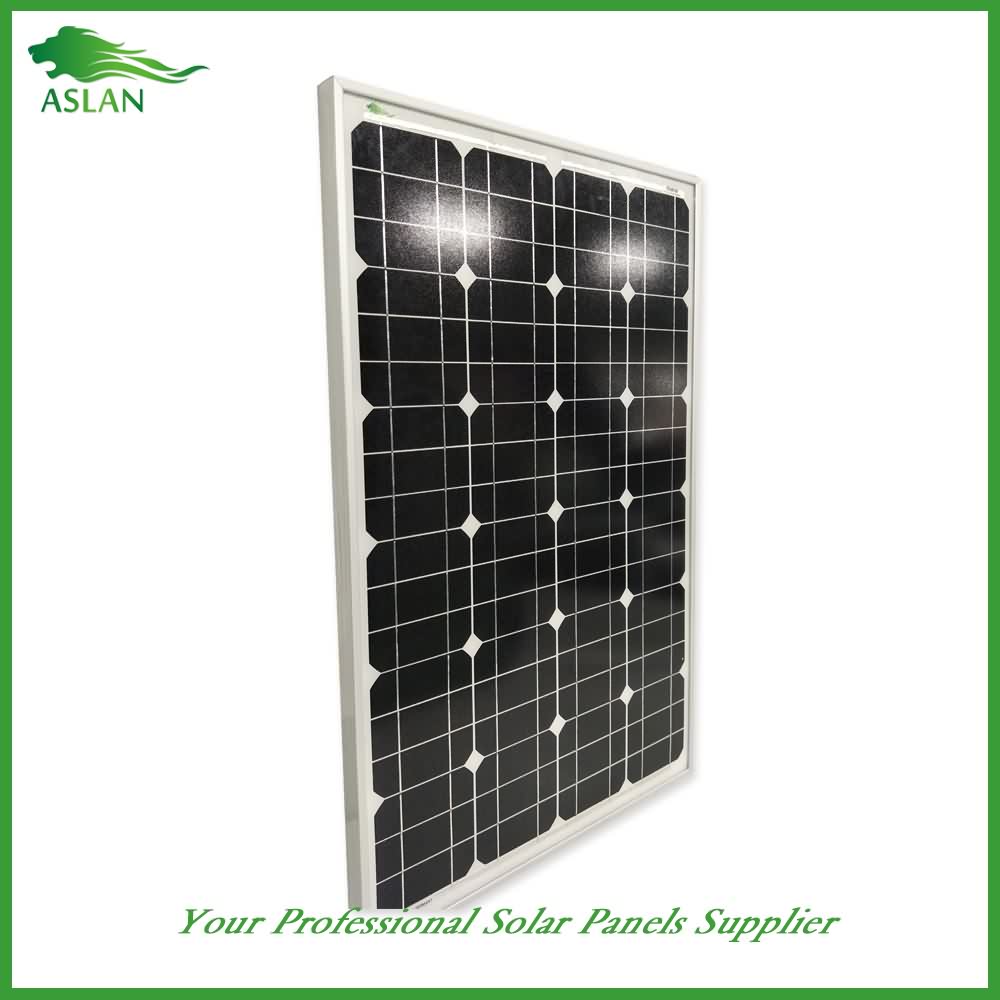8 Year Exporter Poly-crystalline Solar Panel 50W for Poland Importers
Short Description:
The key to our success is "Good Product Quality, Reasonable Price and Efficient Service" for 8 Year Exporter Poly-crystalline Solar Panel 50W for Poland Importers, We cordially welcome customers from at home and abroad to join us and cooperate with us to enjoy a better future.
Poly-crystalline Solar Panel 50W
Technical parameter
Maximum Power(W) 50W
Optimum Power Voltage(Vmp) 18.43V
Optimum Operating Current(Imp) 2.71A
Open Circuit Voltage(Voc) 22.48V
Short Circuit Current(Isc) 2.98A
Mechanical Characteristics
Cell Type Poly-crystalline 156 x 52mm
No of Cell 36 (4x9pcs)
Dimensions 678x542x25mm
Weight 4.2Kg
Front Glass 3.5mm,High Transmission, Low Iron,Tempered Glass
Junction box IP65 Rated
Output Cable TUV 1×4.0mm2/UL12AWG,Length:900mm
Temperature and Coefficients
Operating Temperature(°C): -40°C ~ + 85°C
Maximum System Voltage: 600V(UL)/1000V(IEC) DC
Maximum Rated Current Series: 15A
Temperature Coefficients of Pmax: -0.47%
Temperature Coefficients of Voc: -0.389%
Temperature Coefficients of Isc: 0.057%
Nominal Operationg Cell Temperature (NOCT): 47+/-2°C
Materials of solar panel
1).Solar Cell——Poly-crystalline solar cell 156*52mm
2).Front Glass——-3.2mm, high transmission, low iron, tempered glass
3).EVA——-excellent anti-aging EVA
4).TPT——-TPT hot seal made of flame resistance
5).Frame——anodized aluminum profile
6).Junction Box——-IP65 rated, high quality, with diode protection
Superiority: high quality anodized aluminum frame, high efficiency long life, easy installation, strong wind resistance, strong hail resistance.
Features
1. High cell efficiency with quality silicon materials for long term output stability
2. Strictly quality control ensure the stability and reliability, totally 23 QC procedures
3. High transmittance low iron tempered glass with enhanced stiffness and impact resistance
4. Both Poly-crystalline and Mono-crystalline
5. Excellent performance in harsh weather
6. Outstanding electrical performance under high temperature and low irradiance
Quality assurance testing
Thermal cycling test
Thermal shock test
Thermal/Freezing and high humidity cycling test
Electrical isolation test
Hail impact test
Mechanical, wind and twist loading test
Salt mist test
Light and water-exposure test
Moist carbon dioxide/sulphur dioxide
In today’s Crash Course Astronomy, Phil takes a look at the explosive history of our cosmic backyard. We explore how we went from a giant ball of gas to the system of planets and other celestial objects we have today.
This episode is sponsored by Squarespace: http://www.squarespace.com/crashcourse
–
Makeup of a Solar System 2:38
From Gas to a Disc 5:36
Planet Formation Depends on Distance to Sun 7:14
Motion of a System 8:21
–
PBS Digital Studios: http://youtube.com/pbsdigitalstudios
Follow Phil on Twitter: https://twitter.com/badastronomer
Want to find Crash Course elsewhere on the internet?
Facebook – http://www.facebook.com/YouTubeCrashCourse
Twitter – http://www.twitter.com/TheCrashCourse
Tumblr – http://thecrashcourse.tumblr.com
Support CrashCourse on Subbable: http://subbable.com/crashcourse
–
PHOTO/VIDEO CREDITS
Sun: http://www.nasa.gov/sites/default/files/706436main_20121114-304-193blend_m6-orig_full.jpg [credit: NASA/ESA]
Jupiter: http://www.jpl.nasa.gov/images/hubble/20140515/jupiter20140515-full.jpg [credit: NASA/ESA]
Geocentric celestial spheres; Peter Apian’s Cosmographia (Antwerp, 1539): http://en.wikipedia.org/wiki/Celestial_spheres#mediaviewer/File:Ptolemaicsystem-small.png
Ganymede: http://en.wikipedia.org/wiki/File:Noaa_ganymede.jpg
Mercury: http://messenger.jhuapl.edu/gallery/sciencePhotos/pics/CW0131775256F_web.png [credit: NASA/Johns Hopkins University Applied Physics Laboratory/Carnegie Institution of Washington]
Understanding Solar System Dynamics: Orbits and Kepler’s Laws (2008): https://archive.org/details/OrbitsAndKeplersLaws
Mercury: http://apod.nasa.gov/apod/ap080116.html
Venus: http://www.msss.com/all_projects/magellan.php
Earth: http://earthobservatory.nasa.gov/IOTD/view.php?id=36019
Mars: http://nssdc.gsfc.nasa.gov/photo_gallery/photogallery-mars.html
Jupiter: http://www.nasa.gov/mission_pages/cassini/multimedia/pia04866.html
Saturn: http://www.slate.com/content/dam/slate/blogs/bad_astronomy/2014/06/Ten%20Years%20at%20Saturn/cassini_ugarkovic_saturn.jpg.CROP.original-original.jpg [credit: Photo by NASA/JPL/Space Science Institute/Gordan Ugarkovic]
Uranus: http://hubblesite.org/newscenter/archive/releases/1998/35/image/a/
Neptune: http://www.slate.com/blogs/bad_astronomy/2014/05/15/neptune_voyager_images_updated_for_portrait_of_the_eighth_planet.html
http://www.nasa.gov/sites/default/files/hs-2014-29-a-large_web.jpg [credit: JHUAPL/SwRI/Dan Durda]
Bennu’s Journey: http://svs.gsfc.nasa.gov/cgi-bin/details.cgi?aid=20220&button=recent
http://svs.gsfc.nasa.gov/cgi-bin/details.cgi?aid=11541
Artist’s impression of a protoplanetary disk: http://en.wikipedia.org/wiki/Protoplanetary_disk#mediaviewer/File:Artist%E2%80%99s_Impression_of_a_Baby_Star_Still_Surrounded_by_a_Protoplanetary_Disc.jpg
Rocky Ring of Debris Around Vega: http://www.nasa.gov/mission_pages/spitzer/multimedia/pia16610.html [image credit: NASA/JPL-Caltech]
Proplyds in the Orion Nebula: http://www.esa.int/Our_Activities/Space_Science/Born_in_beauty_proplyds_in_the_Orion_Nebula
Sunpower solar cells help us to develop more products which is higher efficiency or perform better than normal type solar cells. Such as flexible solar panel made by sunpower solar cell is better. Linksolar welcome world wide clients to cooperate with us .we can help u to develop and OEM solar products based our 10years experience and technology.http://bit.ly/28raGuB visit our homepage for more details,
order sample here http://bit.ly/1titLPo
